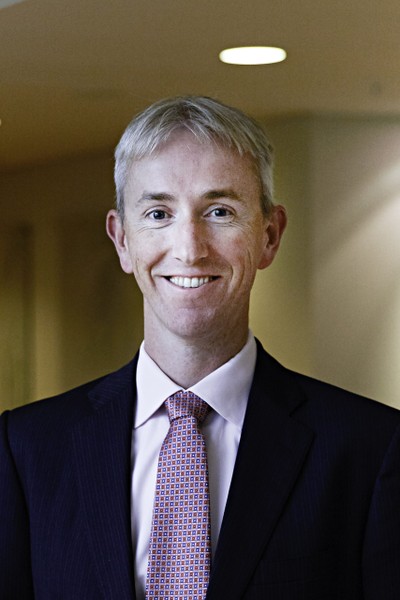
What are your key roles and responsibilities in your current positions? What do you like most about your job and what do you find most challenging?
In my current role as head of Pfizer’s US Breast Cancer business, I lead a large team responsible for enabling patient access to our three life-saving breast cancer medicines, educating healthcare practitioners and patients about the latest clinical and real-world data, and partnering with advocacy groups in advancing care for tens of thousands of women and men living with metastatic breast cancer in the US. First and foremost, I love that my work leads to improvements in outcomes for people with breast cancer. Bringing transformative, new medicines to market, helping patients access them, and providing information that allows HCPs to optimally prescribe them and healthcare systems to reduce variations in care is highly rewarding. The role requires an ability to succinctly convey scientific and clinical data to others, motivating a large team of diverse and skilled colleagues behind a common purpose, and an acquired business acumen to make appropriate trade-off decisions as we run optimally run the business to pay for the next-generation of life-saving medicines. The most challenging aspect of my role is simply the pace of change in oncology. Advances in the oncology field are happening so fast that it is tough to keep up with all of the progress and implications on our development or commercialization strategies.
List or describe the top 5+ professional skills that are crucial to your role.
Analytical thinking and the ability to communicate clearly and accurately in writing and verbally are critically important in the professional setting. I really owe my PhD advisor a lot for stressing the importance of these things, more so than any lab technique I learned along the way. Being able to collaborate and work with others effectively is also very important in the workplace as the problems we tackle in biopharma are so complex and take so long to address that they must be accomplished via teamwork and collaboration – both within a company and with external stakeholders. Project management and being able to gain support/buy-in for your project or idea as well as track progress/outcomes is also a fundamental part of any job in the biopharma industry.
How did your time at Yale shape your career trajectory? For example, what skills and/or experiences did you acquire that have contributed to your career success?
More than any one technical skill that I learned, the PhD training at Yale has shaped my career trajectory by developing my intellectual curiosity, collaborative nature, internal resiliency and a sense of determination to overcome the inevitable speedbumps that one encounters. One’s career path, similar to the scientific journey during a student’s thesis research, is never a straight line and so being open and curious to explore new avenues is critical to finding success and fulfillment. Luckily, through hard work, some good fortune, and being at a company that provides opportunities for personal and professional growth, I’ve been able to contribute and develop in ways I never would have anticipated when I left Yale.
What were the biggest challenges that you faced when transitioning to different workplaces and cultures? What advice and suggestions can you offer to current students to help them prepare for those challenges?
Making the transition from my lab at Yale with 5 people to a biotech with 100 colleagues and then to Pfizer with 100,000 colleagues requires some adaptation. In any transition it is important to be humble, open-minded, and intellectually curious about new areas as well as new people you meet. In academic research, there is more focus on the individual and what they accomplish on their own. In a biopharmaceutical company of any size, the focus is more on the team and how to most effectively and efficiently move a project along. Being able to work cross-functionally and collaboratively with people across the globe is key. One benefit of working for a global company the size of Pfizer is that you get to interact with dozen of subject matter experts from across the globe, and through that you get exposed to lots of different cultures and can harness their diversity of experience, perspectives, and knowledge to find the best solution for a given task. While at Yale, I would encourage graduate students to spend time building relationships outside of your silo and nurturing your intellectual curiosity beyond your research area of focus, collaborate, and always assume positive intent with those you meet. These traits will serve you well wherever your journey may lead.
